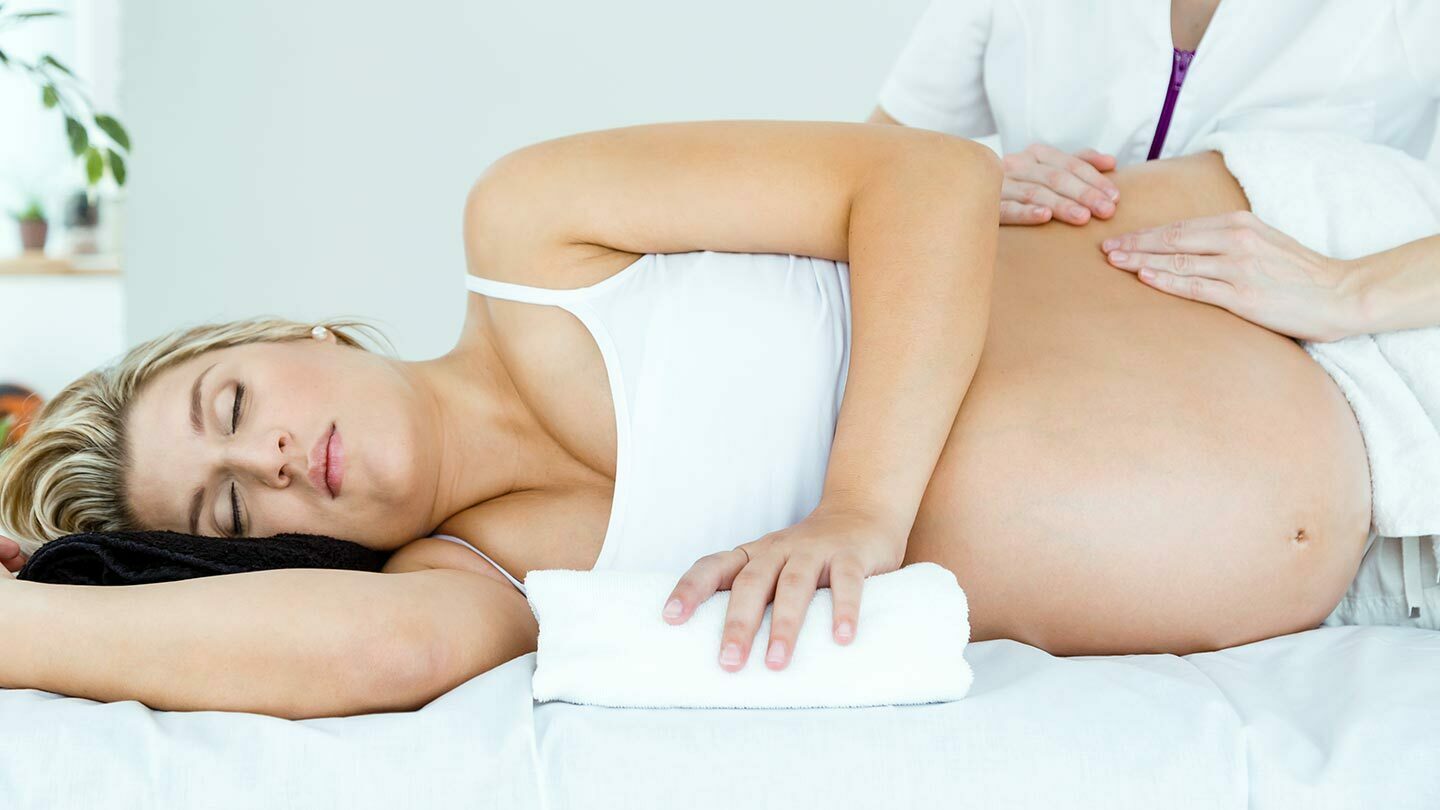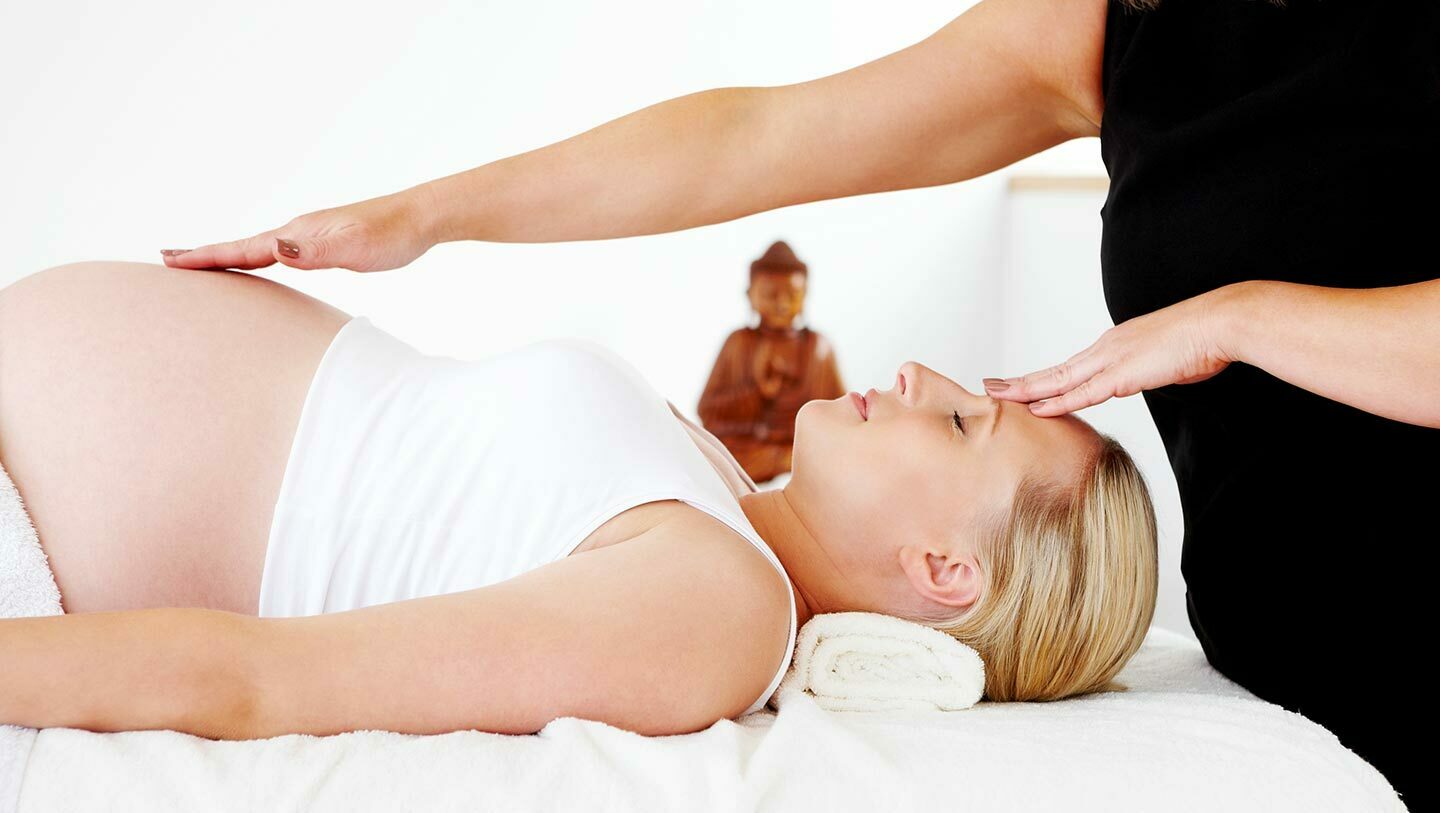Massage, carried out by an expert practitioner, can be nothing short of a godsend during pregnancy. Many spas offer specialist or adapted massages for pregnancy using gentle, relaxing strokes to help soothe aches and pains, improve your mood, and even help with labour.
Prenatal massage can help to:

The first step of a prenatal massage is to get comfortable.
The vena cava is a large blood vessel to your heart, which lies along the back wall of your abdomen, next to your spine. Lying on your back in the later stages of pregnancy can put undue pressure on this area, so it is more comfortable to lie on your side, both when you sleep, and when you have a massage.
Treatment beds and supports used by spas for pregnancy massage include:
During pregnancy, your blood volume can increase by up to 50 per cent and, in turn, anticoagulant levels increase. This means that you are more at risk of blood clots, particularly in your thighs and calves. For this reason, a specialist pregnancy massage will not include any deep-tissue massage strokes in areas such as the legs.
Your therapist is likely to use Swedish massage techniques, as this form of massage employs gliding strokes and gentle kneading designed to improve your blood and lymphatic circulation, soothe your muscles and make you more relaxed. Your therapist may also use acupressure or Shiatsu techniques to stimulate key pressure points to help your physical, mental and hormonal balance. Your therapist will avoid certain pressure points on your ankles, wrists, hands and feet as these are believed to gently stimulate the pelvic muscles, including the uterus.
Some therapists will also include some useful advice in your treatment time, such as tips for better posture, or tips for getting through labour more comfortably. Some therapists also run classes where your partner can learn basic massage techniques to help you through labour, too.
It is worth remembering that most massage treatments take an hour or more. Feel free to let your therapist know if you need the loo during a treatment, as it isn't exactly relaxing if you are focussed on your bladder rather than your breathing!

Many spas suggest that you should not have any spa treatments in your first trimester, or if you are less than 12 weeks pregnant, or more than 32 weeks pregnant in the third trimester. It is best to wait until the second trimester to book pregnancy treatments, as you're less likely to have morning sickness, and the risk of miscarriage is less of a worry by this stage.
Don't book a massage if you are suffering from nausea or vomiting, have a high-risk pregnancy or have previous experience of placental abruption, miscarriage or pre-term labour, or you have pre-eclampsia or hypertension. Call the spa first, and speak to your GP if you have any medical concerns and would like to check if it is safe to have a massage.

Sybaritic Spy
18th February 2013
Spy Likes:
Warm treatment beds; fragrant steam rooms; therapists who listen to what you say; unexpected treats such as back massages that start with hot towels on your feet.
Spy Dislikes:
Small towels; crowded changing rooms; black mould in the showers; therapists who sniff; anyone who doesn't take my lavender allergy seriously - until I'm actually sick on them!
